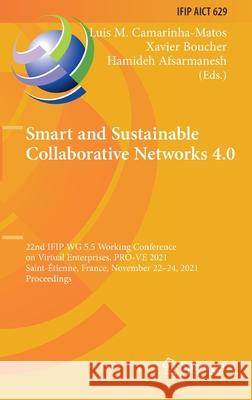Smart and Sustainable Collaborative Networks 4.0: 22nd Ifip Wg 5.5 Working Conference on Virtual Enterprises, Pro-Ve 2021, Saint-Étienne, France, Nove » książka
topmenu
Smart and Sustainable Collaborative Networks 4.0: 22nd Ifip Wg 5.5 Working Conference on Virtual Enterprises, Pro-Ve 2021, Saint-Étienne, France, Nove
ISBN-13: 9783030859688 / Angielski / Twarda / 2021 / 824 str.
Smart and Sustainable Collaborative Networks 4.0: 22nd Ifip Wg 5.5 Working Conference on Virtual Enterprises, Pro-Ve 2021, Saint-Étienne, France, Nove
ISBN-13: 9783030859688 / Angielski / Twarda / 2021 / 824 str.
cena 925,87
(netto: 881,78 VAT: 5%)
Najniższa cena z 30 dni: 886,75
(netto: 881,78 VAT: 5%)
Najniższa cena z 30 dni: 886,75
Termin realizacji zamówienia:
ok. 22 dni roboczych
Dostawa w 2026 r.
ok. 22 dni roboczych
Dostawa w 2026 r.
Darmowa dostawa!
Kategorie:
Kategorie BISAC:
Wydawca:
Springer
Seria wydawnicza:
Język:
Angielski
ISBN-13:
9783030859688
Rok wydania:
2021
Wydanie:
2021
Numer serii:
000385858
Ilość stron:
824
Waga:
1.31 kg
Wymiary:
23.39 x 15.6 x 4.29
Oprawa:
Twarda
Wolumenów:
01
Dodatkowe informacje:
Wydanie ilustrowane











